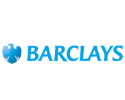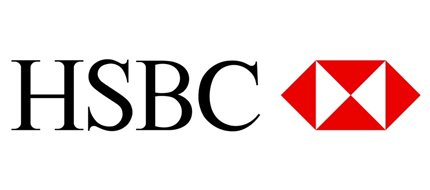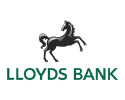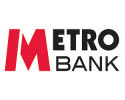
Compare Business Bank Accounts
We’ve compiled a list of the top business bank accounts available in the UK. Whether you are looking to switch from your current business account or you’re setting up a new company and looking for a business bank account for the first time we’re here to help. When you find the account you’re looking for click on the “See Deal” button to go to the providers’ website and complete the application process.
Santander Startup Business Current Account
| Provider | Account Fee | Interest Rate | Available To | Action |
|---|---|---|---|---|
 |
None | 0.1% AER | Ltd companies, partnerships, sole traders and charities | See Deal |
Barclays Startup Business Account
| Provider | Account Fee | Interest Rate | Available To | Action |
|---|---|---|---|---|
 |
None | 0% | Ltd companies, partnerships, sole traders and charities | See Deal |
HSBC Startup Business Current Account
| Provider | Account Fee | Interest Rate | Available To | Action |
|---|---|---|---|---|
 |
None | 0% | Ltd companies, partnerships, sole traders and charities | See Deal |
Lloyds Bank Business Account
| Provider | Account Fee | Interest Rate | Available To | Action |
|---|---|---|---|---|
 |
£6.50 per month | 0% | Ltd companies, partnerships, sole traders and charities | See Deal |
Metrobank Business Current Account
| Provider | Account Fee | Interest Rate | Available To | Action |
|---|---|---|---|---|
 |
None | 0% | Ltd companies, partnerships, sole traders and charities | See Deal |
Natwest Business Current Account
| Provider | Account Fee | Interest Rate | Available To | Action |
|---|---|---|---|---|
 |
£5 per month | 0% | Ltd companies, partnerships, sole traders and charities | See Deal |
Royal Bank Of Scotland Business Current Account
| Provider | Account Fee | Interest Rate | Available To | Action |
|---|---|---|---|---|
 |
£5 per month | 0% | Ltd companies, partnerships, sole traders and charities | See Deal |
Tide Business Current Account
| Provider | Account Fee | Interest Rate | Available To | Action |
|---|---|---|---|---|
 |
None | 0% | Ltd companies, partnerships, sole traders and charities | See Deal |
The Co-Operative Bank Business Directplus Account
| Provider | Account Fee | Interest Rate | Available To | Action |
|---|---|---|---|---|
 |
None | 0% | Ltd companies, partnerships, sole traders and charities | See Deal |
Ulster Bank Business Current Account
| Provider | Account Fee | Interest Rate | Available To | Action |
|---|---|---|---|---|
 |
£8 per quarter | 0% | Ltd companies, partnerships, sole traders and charities | See Deal |
| Provider | Details |
|---|---|
|
Santander Startup Business Current Account  See Deal See Deal |
|
| Provider | Details |
|---|---|
|
Barclays Startup Business Account  See Deal See Deal |
|
| Provider | Details |
|---|---|
|
HSBC Startup Business Current Account  See Deal See Deal |
|
| Provider | Details |
|---|---|
|
Lloyds Bank Business Account  See Deal See Deal |
|
| Provider | Details |
|---|---|
|
Metrobank Business Current Account  See Deal See Deal |
|
| Provider | Details |
|---|---|
|
Natwest Business Current Account  See Deal See Deal |
|
| Provider | Details |
|---|---|
|
Royal Bank Of Scotland Business Current Account  See Deal See Deal |
|
| Provider | Details |
|---|---|
|
Tide Business Current Account  See Deal See Deal |
|
| Provider | Details |
|---|---|
|
The Co-Operative Bank Business Directplus Account  See Deal See Deal |
|
| Provider | Details |
|---|---|
|
Ulster Bank Business Current Account  See Deal See Deal |
|
How To Open Up A Business Bank Account
Bank in the UK are required by regulations to understand your business banking requirements, what your business does, how it is structured, who the owners are etc. The objective being to prevent criminals from abusing the banking system in the UK. As a result, any business looking to open up a bank account must provide a significant amount of information before the bank will consider the application.
Information Required
-
Business Information
You must provide information on the company structure, date of incorporation, anticipated turnover and the contact details for both the business and the directors of the company. You may also be asked to provide some sort of business plan explaining what the company does, which countries it operates in, funding requirements etc.
-
Company Structure
There are a range of company structures allowed by law in the UK including partnerships, limited liability companies, limited liability partnerships, sole traders, clubs and societies or charitable organisations.
What To Look For From A Business Bank Account
Business bank accounts from traditional high st banks are quite similar. They should offer online banking facilities, a chequebook and debit/credit card, a network of high st branches and customer service via call centre and online. Where the banks try to compete with each other is on things like overdraft facilities, interest rates and monthly/annual charges. Some bank accounts also charge fees on individual transactions like withdrawing cash, paying money in, writing a cheque or sending a bank transfer. It is very important to understand how these fees are structured to enable you to choose the right bank account for you. There are also a host of new banks based around online services and mobile apps. These banks often charge lower or no fees compared to high st banks but have no physical branches you can visit.
Bank Account Jargon Buster
-
AER
The Annual Equivalent Rate is calculated as the amount of interest you would earn by having a set balance in the account for 12 months. The higher the AER rate the more interest you’ll earn. It is designed to help you compare different accounts.
-
BACS
Bankers Automated Clearing Services allows you to make payments directly from your account to any other UK bank account. This system processes direct debits, salary payments, standing orders etc.
-
Direct Debit
Direct Debits authorises companies to take payments from your bank account on an agreed date each month. They are designed for regular payments that might otherwise be forgotten. Direct Debits come with a protection guarantee if any mistakes are made.
-
Debit Card
Debit Cards are used to make payments in person, over the phone or online. The amount paid is deducted from your account immediately so no interest can be charged by the bank (as with credit card payments). They are a useful alternative to petty cash for a small business.
-
Fees
Fees are charges imposed by your bank and can be for a range of different activities. Fee’s vary between banks and it is important to understand your banks’ fee structure to avoid any nasty surprises on your account. Fee’s can be charged for everyday transactions like withdrawing cash or issuing a check. Fees can also be charged if you try to make transactions/payments while you have insufficient funds in your account.
-
Overdrafts
Your account goes into overdraft when you spend more money than you have in the account. Most bank accounts allow for an overdraft but unless it is agreed in advance they will likely charge fees or interest for as long as the account is overdrawn.